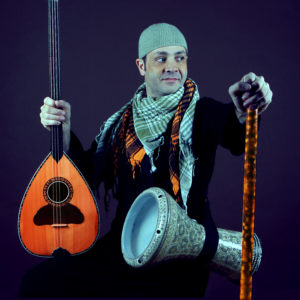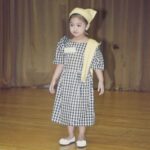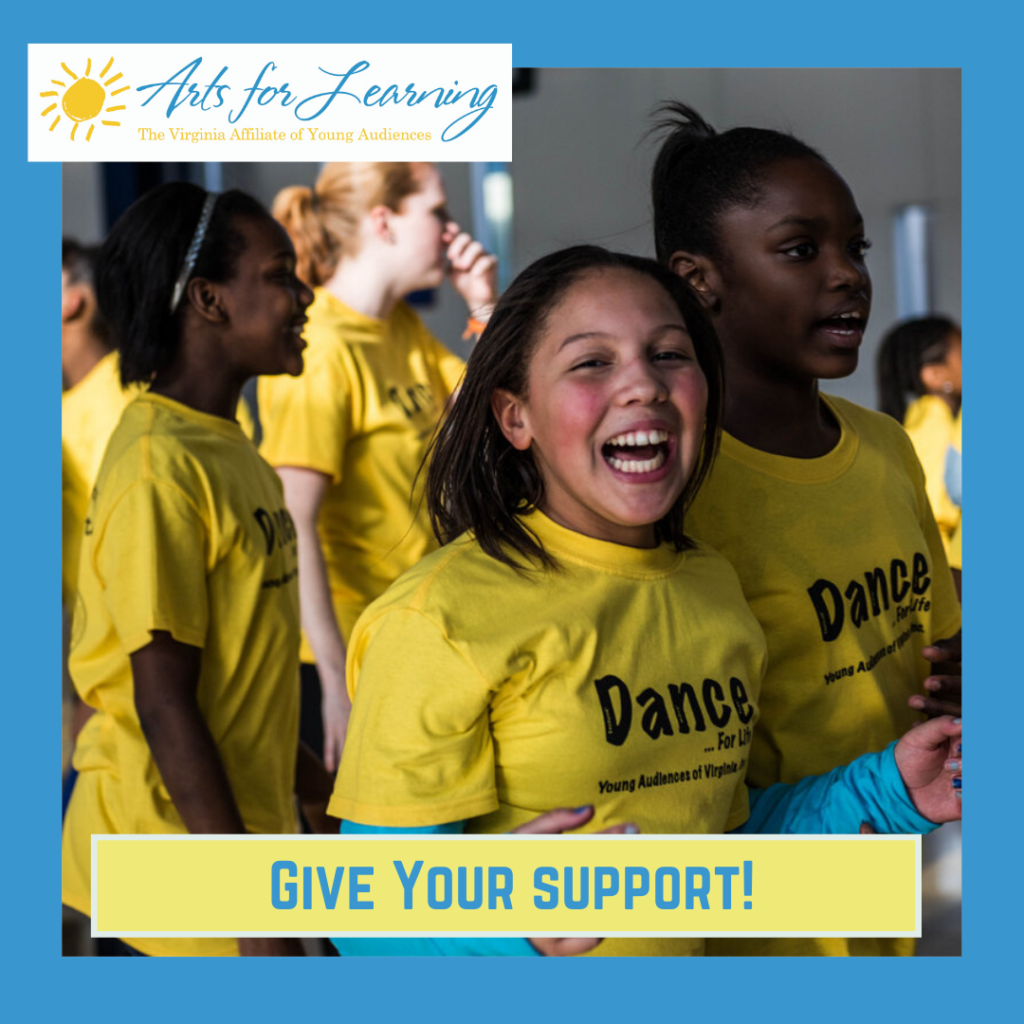 With all the challenges Arts for Learning has faced in the past year, there’s one very positive side effect—thanks to virtual programming, our roster has expanded to include vibrant and culturally diverse artists who live in other parts of the United States. We’re especially excited about Chicago-based artist Karim Nagi joining our team. Karim is an Arab musician, dancer, and folklorist whose program “Arabiqa” is now available for booking.
With all the challenges Arts for Learning has faced in the past year, there’s one very positive side effect—thanks to virtual programming, our roster has expanded to include vibrant and culturally diverse artists who live in other parts of the United States. We’re especially excited about Chicago-based artist Karim Nagi joining our team. Karim is an Arab musician, dancer, and folklorist whose program “Arabiqa” is now available for booking.
As a native of Egypt, Karim immigrated to the United States when he was eleven years old, along with his mother and father. The family settled in Boston, where Karim attended public school and where few students knew much about his home country, culture, or Muslim religion. Karim eventually became a professional performing artist. Since 1999, he has led the Sharq Arabic Music Ensemble, a group dedicated to preserving and presenting traditional Arabic vocal and instrumental music.
After the terrorist attacks of 9/11, a school invited Karim to make a presentation about Arab culture to students who “only had the frightening impressions from the news.” With close to 500 presentations since that time, he’s refined his performance into a dynamic and informational exploration of Arabic culture. The program blends music, dance, language, and traditional costumes. Karim demonstrates the traditional percussion and string instruments he plays and shows different dance styles he learned growing up in Egypt, as well as folk dances from Lebanon, Syria, Morocco, and other Arab countries.
In addition to exposing students to new art forms, Karim has a more personal motive for his performances.
“If everyone relies on the news or some type of media portal to get their information about another person, they’re only going to have stereotypes and simplistic renderings and one-sided reports. When people are learning about other cultures, it’s very important that they interact with people from those cultures,” Karim says. “I believe it’s important that they learn about my culture specifically because it’s so central in news and world politics, but I’m more interested in the process of people becoming tolerant and receptive of diversity so I think it’s important for them to interact with actual people from each segment of society.”
In the twenty years he’s been performing in schools and performing and leading workshops for adults, Karim has seen a positive shift in perception.
“People are more aware that the arts have a role in sharing culture and creating dialogue between people. I think before people thought of the arts as just entertainment. But these days people really give it the credit that it deserves.”
When schools shut down across the country last spring, Karim had an advantage over many performing artists because he was already experienced working with video and audio. With his virtual presentations, he adjusts to the needs of an individual school, with both live and recorded performances available. But whatever the format of his performances, he’s committed to make them interactive.
“I still need to engage with each student behind the screen and make them feel that they need to participate. That’s the important thing, rather than just performing in a block for forty-five minutes and students having to watch. This is true in real-life, in-person performances as well. With digital, I have to make sure I still keep it engaging and in a way that students participate.”
So how does Karim know that he’s making a difference through his school presentations? Earlier in his career, the words of a student from Virginia made a big impression.
One of the fourth graders came up to me and said they wanted to be Arab when they grew up. This fueled me a lot. I’m helping people become less afraid of something that’s foreign or something that’s perceived as anti-American by some people. I was expressing my culture and a young child saw it as something that they would like to emulate. Even if they didn’t understand the difference between ethnicity and career at the time, it still meant that they weren’t afraid of it, that they could relate to it.”
Interested in Karim doing a virtual presentation at your school, library, or community center? Contact Aisha Noel at 757-961-3737 or email us at programs@Arts4LearningVA.org for more information. We may have funding available to help offset the cost of Karim’s performance!



